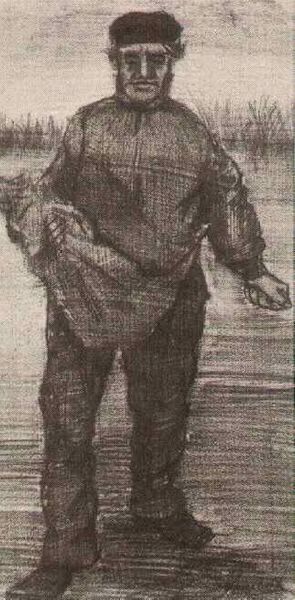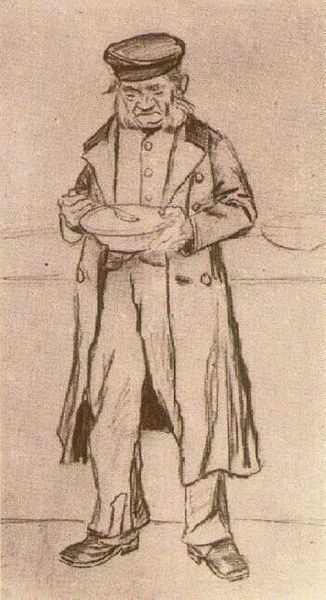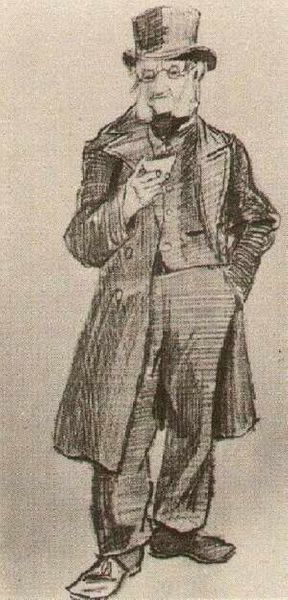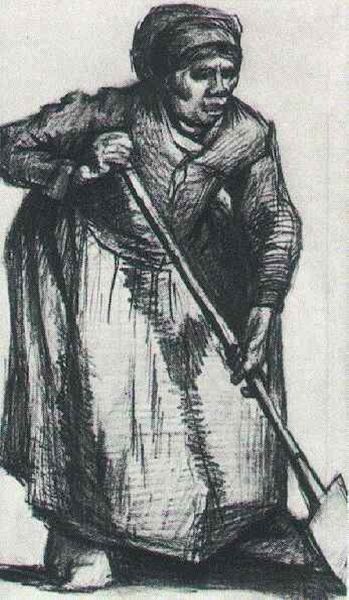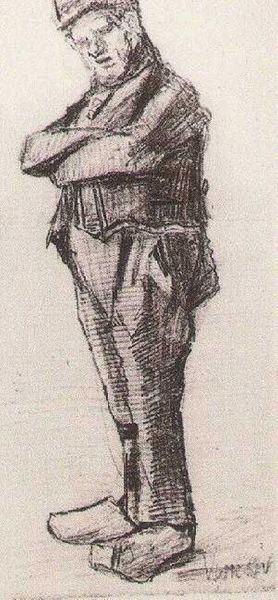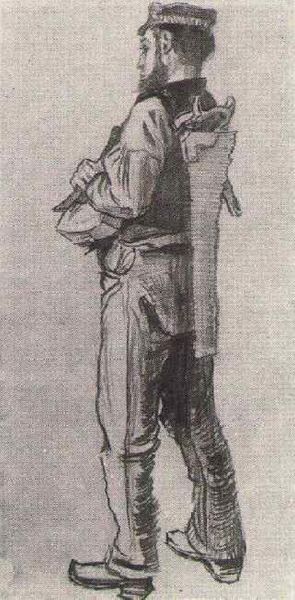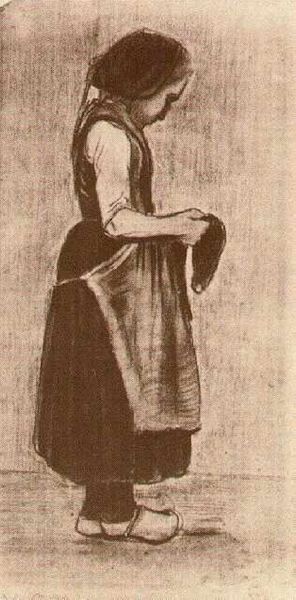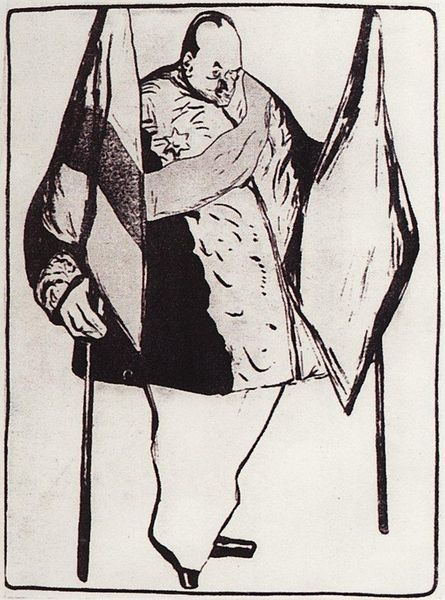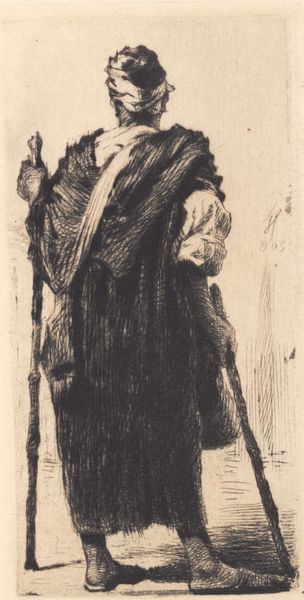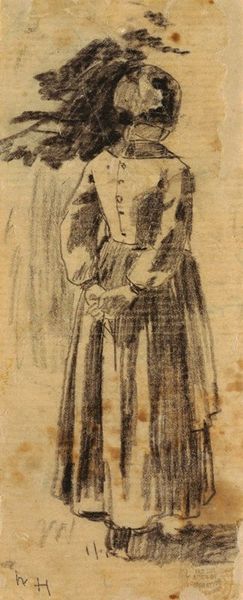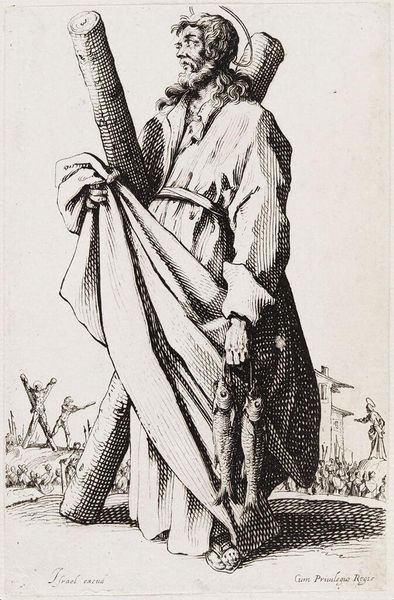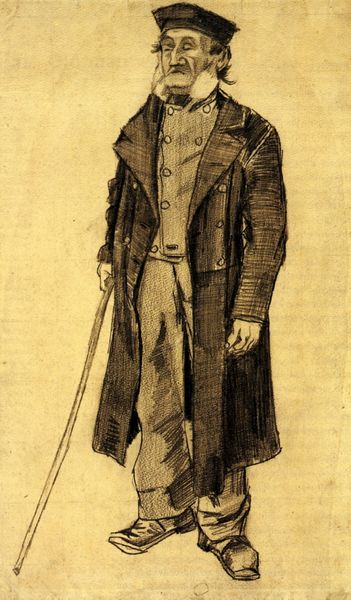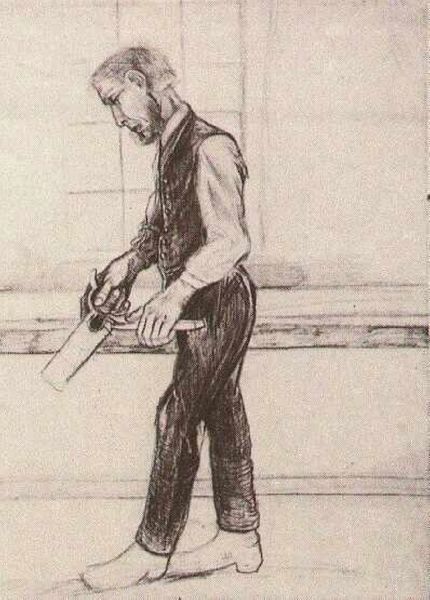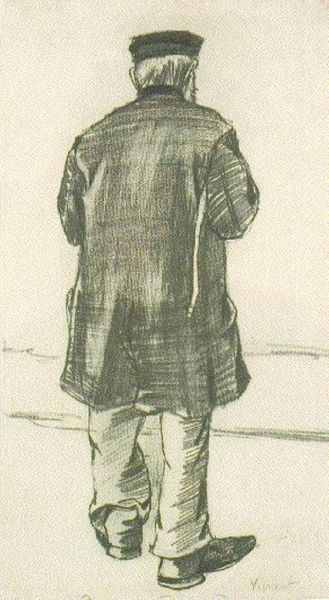
Orphan Man with Top Hat, Eating from a Plate 1882
0:00
0:00
vincentvangogh
Irving Mitchell Felt Collection, New York City, NY, US
drawing, pencil
#
portrait
#
drawing
#
impressionism
#
charcoal drawing
#
figuration
#
pencil drawing
#
pencil
#
portrait drawing
Copyright: Public domain
Editor: So, here we have Van Gogh's "Orphan Man with Top Hat, Eating from a Plate," a drawing from 1882 rendered in pencil and charcoal. It has a certain grimness about it, don’t you think? All those rough, scratchy lines seem to emphasize the man's weariness. What jumps out at you when you look at this drawing? Curator: Weariness, yes, but also something stubborn. Van Gogh often focused on working-class figures. See how he uses those frantic, almost vibrating lines? They remind me of a restless energy, even in destitution. He’s not just depicting poverty; he's digging for the human spark within it. Doesn't that plate seem almost comically large for what it likely holds? Editor: It does, actually. A detail I hadn't considered. So, he’s emphasizing the man’s…hunger? Is it purely physical, or is Van Gogh suggesting something more profound? Curator: I lean towards profound. Food is survival, dignity, connection. Van Gogh, perpetually wrestling with his own demons, might be mirroring that struggle for sustenance, for meaning, in this man’s simple act of eating. It's less a portrait, more an existential question mark scribbled onto paper. Editor: Wow, that gives me a totally different perspective. I came in thinking 'poverty,' but you’ve opened up ideas of resilience and searching for meaning. Curator: That's the beauty of art, isn't it? We bring ourselves to it, and hopefully, we leave with a little more to carry. Editor: Absolutely! Thanks for that, I really appreciate your insights.
Comments
No comments
Be the first to comment and join the conversation on the ultimate creative platform.
